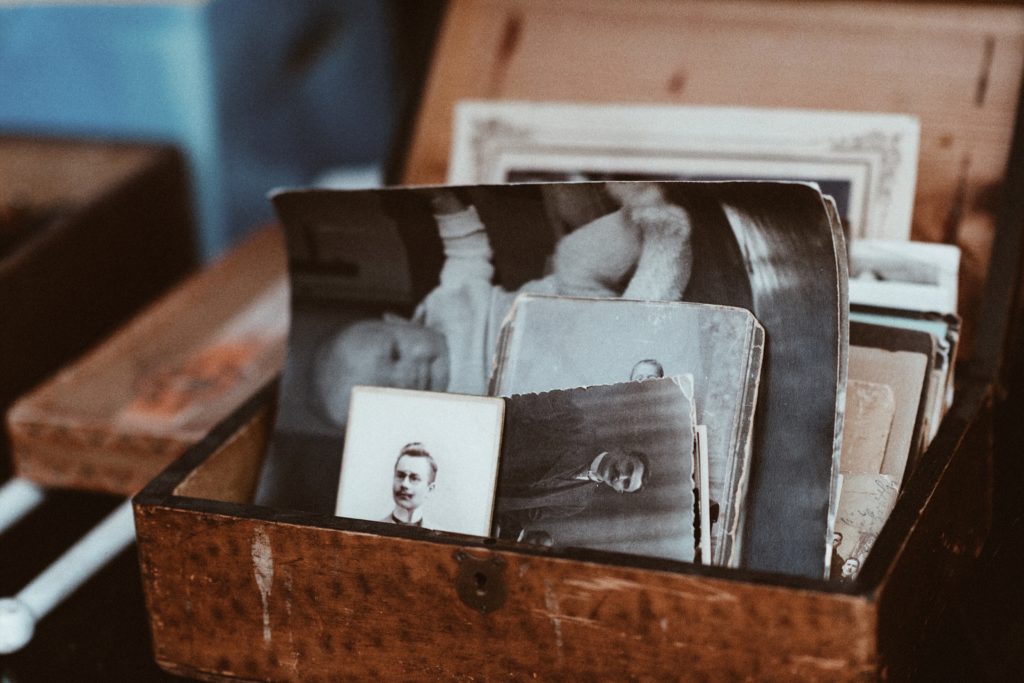Genealogy
Excerpt from Genealogy by Belinda Paxton, Student Anthology Power 2018.

It is late winter, and mornings such as these, cold and bright, have been a long time coming. One hand on the lid of the letterbox, Edna stops and allows her silver hair, kinked like rippled water, to be heated by the sun. The roses are just coming into bud. A few are frilled at the tip with red petals, laced about the aperture with wrinkles. Her girls.
She has several varieties, but none in the outlandishcolours bred by the Americans. Money and no class, the Americans. Her roses are all traditional shades of red. The bushes, black arms grasping, will soon be rich with foliage and daubed by blooms as bright as viscera. It won’t be long. She cuts them before they have time to spread their petals and reveal the sun-warmed fruit within. There will be plenty, and she will gather them in her arms, cradle them and plunge them into vases about the house. When it comes to roses, she wants more than enough (her own bud dried on the stalk, unflowering).
She tilts her face to the sky and squeezes her eyes shut. The sun presses on her lids like a knuckle in the eye socket. A voice comes to her that seems to roll across the long years; a voice that has waited for decades on the far edges of her perspective.
‘Mrs Armstrong? Mrs Edna Armstrong?’
She opens her eyes, and a young woman stands before her. Twenty-five maybe. Pretty, in the way that they all are at that age: pig-ignorant about it. Dark hair, flat against her head. Freckles. She is wearing a red leather jacket that is out of fashion; an op-shop job. Possibly wants money.
‘Excuse me. Who is asking?’ Her tone is arch. When in doubt, use your most impeccable manners. Watch the fools flap about; watch them struggle to reach the bar you’ve set. But this woman is too intent to be put off.
‘My name is Veronica Huck.’ His mother’s name was Veronica. ‘I wonder if I could talk to you for a moment. Just a minute or two.’ The shape of her face is like Malcolm’s. Or rather, the shape of Malcolm is in her face; the set of his brow, his firm jaw. ‘If that’s okay.’
‘No. I’m sorry, I’m quite busy.’
Mrs Malcolm Armstrong turns away. There is her front door, shaded by the cool verandah and offering the sanctuary of her house. Soon she will fill the house with roses, cut roses. The path to her door seems very long. She must hurry. Over her low, sensible-heeled shoes, her ankles tremble.
‘Please.’ The woman reaches out and holds onto her forearm. Mrs Malcolm Armstrong is put out. Really quite put out. Outrageous that young people think they have the right. She opens her mouth to say something cutting to put the girl in her place, but the words will not come. Instead, Edna’s lips fumble the air; a stunned fish pulled onto the bank. She tugs her arm free and puts her head down until it is nearly at a right angle to the ground. Turtle-like, she barrels along her front path. Though her world is collapsing around her, if she continues her forward movement she must necessarily reach her door.
Somewhere nearby, the young woman says, ‘I knew your husband. Malcolm Armstrong.’ Mine, thinks Edna. My name in her mouth. My achievements that were his. His managerial position, his fairness to his staff, the important conferences that took him away. His generosity to his personal assistant.
She continues towards the door. Behind her, the girl’s words clatter to the ground like slate tiles. ‘He was my father.’
There was a time when Edna had yearned for soft things, small things; a soft thing that would turn its eyes only to her, that would wear soft knitted things against its skin, whose soft cheek she might caress to brush away some grief. Once there was that. But the doctors told them that the mix of their blood killed the conception. And when she cried to Malcolm for the other method, the clinic method, even when she fell to the carpet buckled by her rage and despair, he would not permit another man’s seed to enter her womb. Possessive. Foolish. So like a man. These days, she can be indulgent of him (although these nights, still sleepless, she lies face-up in bed with her bloodied fingers writhing on her chest, peeling away her own cuticles).
It seems a miracle to Edna that the door is on the latch and opens easily to the touch. Within the soothing embrace of her hallway, she slumps with relief. But when she turns to close the door the woman has extended her arm to press it open. Appalling. Her toe is over Edna’s threshold.
‘Wait,’ says the young woman. With her free hand she proffers a photograph. ‘I’m ill. I need his family history.’
The photograph is the old Polaroid type, with the pillowy film stamped onto the white card. It shows Malcolm seated with a woman. His personal assistant, who Edna met on several occasions. They are on a couch in front of a yellow curtain, through which a bleak light seeps. Sealed against the light, this room. Curtains drawn. An enclosed space. On their laps, held so closely between them that it is impossible to say whose knee she sits on, is a little girl.
Looking up, Edna at last meets the woman’s eyes. She’s worried, thinks Edna. She needs me. In the woman’s eyes, she sees the child in the photograph. A soft thing. A small thing.
This time, though, Malcolm is not in charge of small, soft things. His name belongs to Edna. There it is, on the letter still pincered between Edna’s thumb and forefinger. His lineage, to which she has become entitled. It’s not enough, but it is something.
 Previous Post
Previous Post